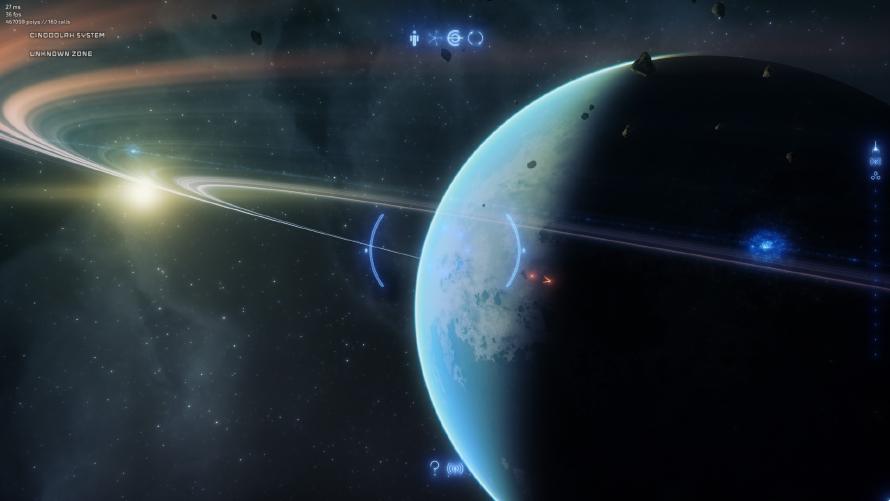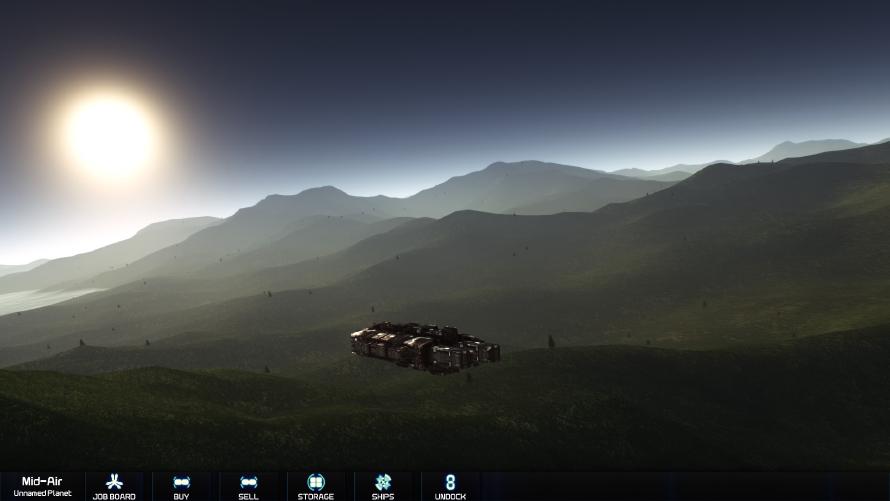Limit Theory Development Ends
In 2012, Josh Parnell had a vision: Limit Theory, an open-world space simulator, a sandbox game with no restrictions. In the beautiful, procedurally generated universe, players could explore, trade, pirate, mine, escort, hunt, defend, build, and more.
To finance Limit Theory, Josh did what many indie developers did in 2012. He launched a Kickstarter campaign. With great screenshots, amazing videos, and his unprecedented enthusiasm, Josh managed to raise a grand total of $187,865 from 5,449 backers. I was one of them, and I even covered the game on this site. The campaign was a success, and he now had the means to focus on Limit Theory without having to worry about money.
The game was a massive undertaking, with an enormous scope. Josh was a computer graphics student at the time, but that didn’t stop him from working 40 hours a week on Limit Theory. Unlike many other Kickstarter projects, he also engaged with his audience regularly, and somehow found the time post regular video updates on YouTube.
The game was originally slated for release in 2014, just two years after the Kickstarter campaign ended. It became obvious early on that the planned release date was not even remotely realistic. Limit Theory had the scope of No Man’s Sky - sans multiplayer - and it kept changing slightly. Josh, being a perfectionist, seemed to find it hard to actually finish a particular feature, and move on to the next. On top of that, he would not only develop the game’s features, he would also develop game’s engine from scratch.
2015. The Wall
In January 2015, Josh replaced his monthly development updates with weekly digests. But only two of these digests were published before Josh suddenly fell off the grid. The Kickstarter updates didn’t return until September 2015, and from that it was obvious that the Limit Theory development wasn’t going swimmingly.
Ultimately it, along with a solid year of unhealthy work habits, spiced up with the onsetting of some pre-existing conditions unknown to myself, ended up backfiring and, ironically, was the beginning of the end for my sanity. I wish that were a joke, but it’s not really.
– Josh Parnell, Limit Theory.
By some miracle, Josh was able to return to work on Limit Theory. But with the realization that he’d been working way too hard for three years, he embraced a far healthier work schedule. No more all-nighters. Less community interaction. More development. Separation of work from personal life. Josh had hit the wall, but somehow managed to climb over it, and Limit Theory was back on track.
At least for a while.

2016. The Silence
The next update didn’t appear on Kickstarter until February, 2017, one and a half year after the previous update. Limit Theory was now 3 years behind its original release schedule, and far from finished. The game development had run into a difficult technical problem with no easy solution. Josh, preferring to the bearer of good news, had been less keen to communicate than during the early days of Limit Theory development.
Quite honestly, it’s been a rather bleak period for me - where once I got to have fun building things freely, I’ve had to shift to the much less fun problem of figuring out how to do so ‘sustainably,’ so-to-speak.
– Josh Parnell, Limit Theory.
2017 and 2018 saw semi-regular development updates to both the Kickstarter page, and Limit Theory’s considerably more active forum. But many of the posts focused on the technical challenges of Limit Theory, and not so much on the game’s features and mechanics.

2018. The End
Yesterday, Josh pulled the plug in Limit Theory. In a lengthy update on Kickstarter, he admits that the game has finally exhausted him. Financially. Emotionally. Mentally. Physically.
What happens, then, when you tell five and a half thousand backers they will never have the game they were promised? You’d think they’d tear you to pieces. But despite how the adventure of Limit Theory ended, Josh has always come across as an honest, dedicated, and likeable young man. He has been walking on a knife’s edge for years to finish the game.
The vast majority of the comments on the final Limit Theory updates are encouraging words. I think many of the Kickstarter backers, and members of the Limit Theory community, saw the writing on the wall long time ago. Josh was burning the candle at both ends. It couldn’t last, and most of us probably came to terms with the fact that the game would never happen years ago.

But Wait. There’s more!
As a final hat tip to the Kickstarter backers, Josh will make the Limit Theory code available to the public. This could mean that the game still might be finished.
The best possible scenario is this: Josh takes a long break from Limit Theory, and spend some time backpacking through Asia. Meanwhile, a game developer picks up the Limit Theory source code, makes sense of it, and offers Josh a 9 to 5 job as lead programmer on the project. I very much doubt that this will happen, but one can hope.
The worst possible scenario is that that a game developer picks up the source code, and make Limit Theory a commercial success without involving Josh, or giving him credit nor the financial compensation he’d deserve. I fear that this is a more likely scenario.
This post as barely scratched the surface of what has been a young man’s 6 year uphill struggle. If you want the in-depth version, I strongly suggest you head over to the Limit Theory Forums.
Josh, If You’re Ever Reading This
Don’t kick yourself over Limit Theory.
Projects fail. All the time. I’ve had my share of those. And like many of the other Kickstarter backers, I’ve got my money’s worth from the numerous video, and blog updates you posted over the years.
Admitting defeat shows character in my book. I’ve backed a few other projects on Kickstarter that have just fallen off the grid. Take care of yourself, and wake up tomorrow morning knowing that you’ve finally got this giant monkey off your back.
Good luck in all your future endeavors.
Feedback
This post has no feedback yet.
Do you have any thoughts you want to share? A question, maybe? Or is something in this post just plainly wrong? Then please send an e-mail to vegard at vegard dot net with your input. You can also use any of the other points of contact listed on the About page.